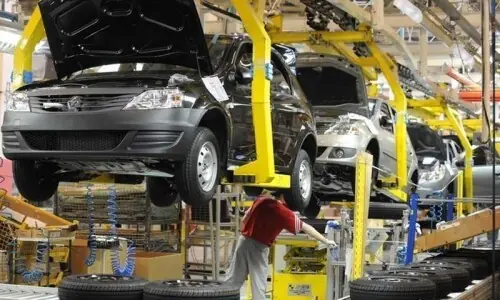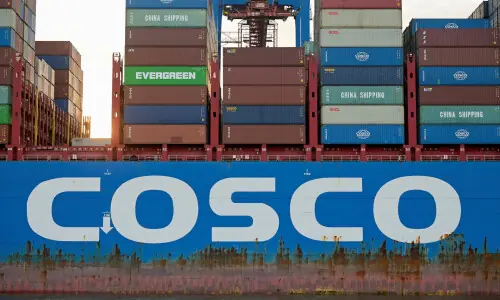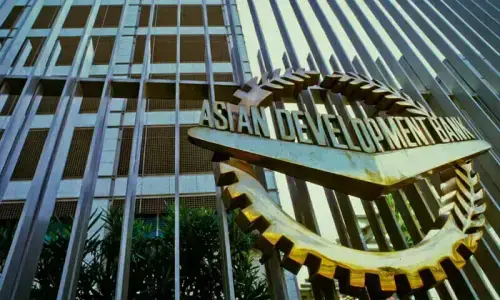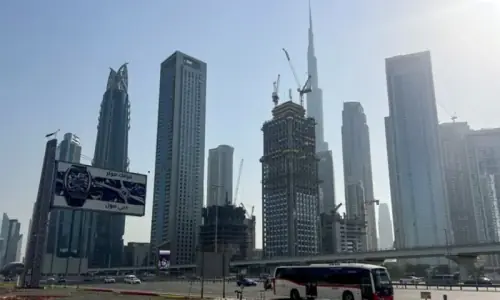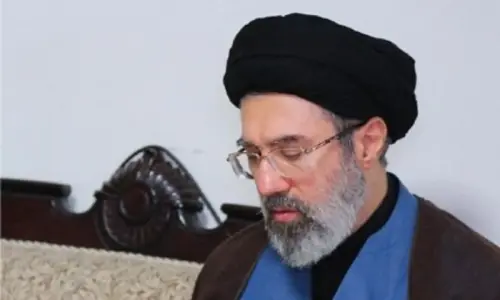WASHINGTON: A senior US official has said that Washington is not offering waiver to any country from curbs on commercial deals with Iran and so far, the restriction applies to India as well, which is a major importer of oil from Iran.
Alice G. Wells, Principal Deputy Assistant Secretary of State for South and Central Asia, said in a conference call with journalists on Monday that restrictions also apply to investments in Iran’s Chahbahar port, a project built with India’s cooperation.
Ms Wells – who was briefing journalists on the two-plus-two talks between the US and India, held in New Delhi on Sept 6 – said there was no “blanket waiver or country-specific waiver” from US sanctions on trading with or investing in Iran.
She said the sanctions on Iran that come into force on Nov 4 are not specific to India, which imports 25 per cent of its oil from Tehran. Iran is India’s third largest supplier of oil, after Iraq and Saudi Arabia. Between April 2017 and January 2018, Iran supplied 18.4 million tonnes of crude oil to India.
Answering a question on whether US restrictions on trade with Iran were discussed at the US-India talks, she said that there was a discussion in general over the sanctions and on Trump administration’s goal to hold Iran accountable for its alleged ‘maligned behaviour.’
The two sides also talked about how US expects other countries to bring their oil imports from Iran “down to zero as quickly as possible” and on US efforts to ensure that the restrictions do not disrupt the market, she said. The US has assured the Indians that adequate supplies are readily available that could be easily substituted for Iranian oil, the US official added.
“With respect to Chahbahar, we have heard the Indian government’s assertion for Chahbahar both as a means of route to Afghanistan, a means for delivering wheat supplies, for instance, and of opening-up trade to Central Asia,” she said.
“The US officials were clear that we were still in process of reviewing the implementation of sanctions and that we were taking this under advisement. So it was an informational conversation between the parties.”
She also said that the New Delhi talks were primarily a strategic dialogue, but trade related issues were also discussed focusing on how both countries could grow their trade relationship in a fair and reciprocal manner.
She said that tariff and non-tariff barriers have been the subject of long-standing concerns and the US was now working with the Government of India to address these market access issues.
The US secretary said that, in New Delhi, the Indian and American leaders committed themselves to resolving trade issues and reaching an agreement to promote bilateral trade.
She noted that the US was now India’s top market for exports and the US-Indian bilateral trade expanded by $12 billion in 2017 totalling to $126bn, whereas two-way investment expanded almost $57bn.
She also said that, so far, the US had not taken any decision on giving a waiver to India to purchase S-400 Triumf missile system from Russia.
“We continue to have conversations with the Indian leadership. We are working to hold Russia accountable for its behaviour and Secretary of State Michael Pompeo said these sanctions are not intended to adversely impact countries like India. They are designed to impact Russia”, she said.
Published in Dawn, September 12th, 2018




